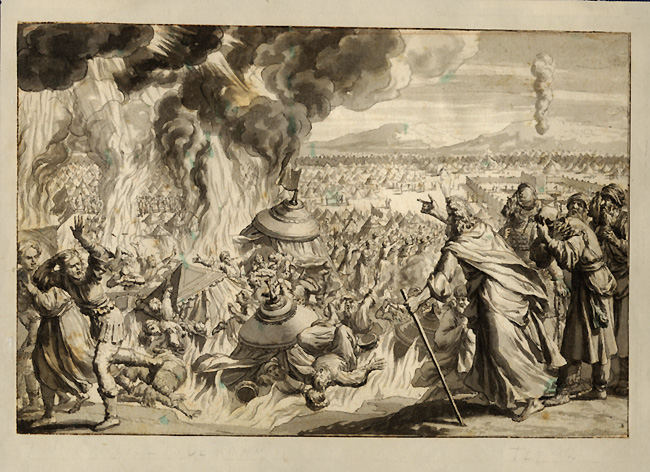Bizarre
- Lepic, Ce qui Restait du Puissant Guillaume de Naillac
- Claeaz, Dancers with Death
- Anonymous American, A Naked Man and Horse
- Klinger, Amor, Tod und Jenseits (Love, Death and the Hereafter)
- Surugue, La Folie pare la Décrépitude
- Legros, La Légende du Bonhomme Misère : La Mort dans le Poirier
- Rops, L’Enlèvement
- Sadeler, Allegory of Opulence, Fornication and Stupidity
- Mohlitz, La Vierge aux Étrons (The Virgin of Turds)
- Legrand, Épaves de Famille (Oddballs of the Family)
- Jacquemart, L’Écurueil (sic)
- Benassit, L’Absinthe!
- de Bry, Punishment of the Mutinous Indians
- Goncourt, Le Singe au Miroir (The Monkey at the Mirror)
- Callot, Les Martyrs du Japon
- Dillon, Les Mendiants (The Beggars)
- Barberis, The Witch
- Budzinski, The Thirsty Giant
- Meryon, Le Ministère de la Marine
- Torre-Bueno, Death’s Arrival
- van Meurs, Animals of America
- Redon, Félinerie
- Chagall, Le Vixe
- Martin, Indécision (Tête de Femme)
- Rops, Le Calvaire
- Rops, Les Frères de la Bonne Trogne
- Gillray, Tentanda via est qua ve quoque possim Tollere humo
- Underwood, Simian Ecstasy
- Veber, Beheaded!
- Strang, Death and the Ploughman’s Wife: Frontispiece
- Corman, The Temptation of Saint Anthony
- Bliss, Gargoyles Spouting
- Castellón, Of Land and Sea
- Eichenberg, Isaiah 11
- Rops, L’Idole (The Idol)
- Master MZ, Aristotle and Phyllis
- Bracquemond, “Hors de mon soleil, canailles!"
- Spare, Nemesis
- Higgens, Forgotten
- Anonymous, Jewish Amulet to Protect Mother and Child
- Daumier, Une Expérience Qui Réussit Trop Bien
- Seligmann, Le Roi du Charbon (King Charcoal)
- Braun, The Release of Force
- Callot, Le Grand Rocher
- Forest, Bâstard Foetus Hérédité, Comte D’Averton Mort-Né
- Jacque, La Souricière
- Veber, “Ah! Qu’il fait chaud"
- Pastelot, Les Sorcières
- Lepic, Le Verger du Roi Louis (The Orchard of King Louis)
- Grandville, Résurrection de la Censure
- Tidemann, The Earth Swallows Up the People of Korah
- Shields, The Descent
- Redon, C’est le diable
- Sadeler, Ita Erit et Aventus Filii Hominis
| 51. Philipp Tidemann (1657-1705) The Earth Swallows Up the People of Korah |
(click on image to print)

The Earth Swallows Up the People of Korah
Original drawing in pen and black ink and grey wash, ca. 1690s, 139 x 207 mm. One really need not look further than the Bible to find subjects for bizarre images. The Book of Numbers in the Old Testament, besides publishing the census of the twelve tribes of Israel, the allotment of land and property, a collection of rules for proper behavior and the like, also tells of the dissatisfaction of various groups with Moses. As both punishment and proof that he is the sole communicant of Jehovah’s orders, Moses tells the group to stand clear of Korah and his people, for Jehovah will have them swallowed up in the earth with all their property. And so it was, and so it is in this drawing. Moses is at the right. Jehovah, one may assume, has taken up temporary residence in the cloud that hangs over the tents of the Israelites. Tidemann was a Dutch painter born in Germany, who also illustrated books. This drawing has been engraved, in reverse, for one of them. A few pale, colored stains and the sheet laid down to another.
| $1,500.00 |